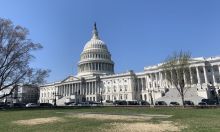Ayrianne Parks
Ayrianne Parks is the senior director of policy advocacy at Enterprise, where she oversees the organization’s tax policy team. In addition to leading Enterprise’s policy advocacy on the Low-Income Housing Tax Credit, New Markets Tax Credit, Neighborhood Homes Investment Act and Opportunity Zones, she manages membership and legislative advocacy coordination for the ACTION Campaign, a grassroots coalition of 2,400 organizations co-chaired by Enterprise and the National Council of State Housing Agencies.
Prior to joining Enterprise, Ayrianne served as the director of policy and public affairs at Rapoza Associates, a public interest lobbying firm specializing in community and economic development. A skilled legislative and communications expert, she previously advocated for labor rights and workforce development for migrant and seasonal farmworkers at the Association of Farmworker Opportunity Programs, served as a public affairs manager at the Curley Company, and coordinated women’s specialty media for the 2008 Democratic Congressional Campaign Committee, in addition to internships on Capitol Hill and with the Sierra Club’s legislative office. Ayrianne holds a bachelor’s degree in political science and Spanish from Concordia College in Moorhead, Minnesota.

Washington, D.C.
10 G Street NE
Washington, DC 20002





